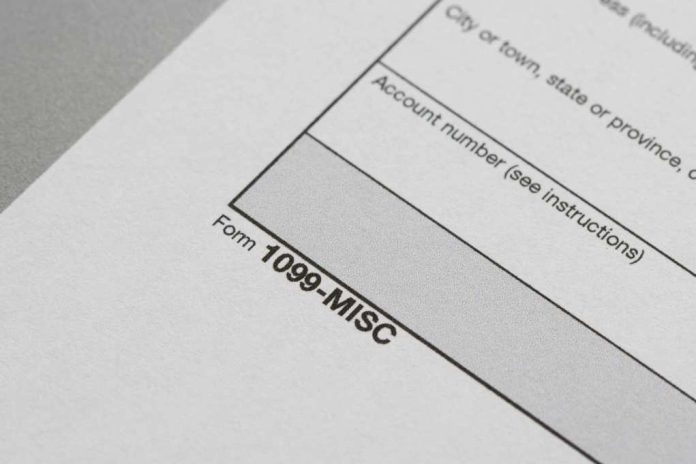
Wondering what qualifies as a 1099 employee? You’ll find the answers to all your questions here in this article.
When you are a business owner, there are a lot of parts that you will need to manage. One important piece of your business is your workforce. Many people don’t realize that there is more than one type of worker!
The type of worker you have will impact more than you think, especially when it comes to how your company handles taxes. Many small business owners find themselves considering a 1099 employee, due to some benefits that come along with this type of worker.
However, before you make any decisions yourself, you will want to look at your options and understand what’s out there! In this article, we will go over what qualifies as a 1099 employee, and how you can use these types of workers in your business.
First – A Brief Overview of Traditional Payroll Employees (W2 Workers)
Before we explain what qualifies as a 1099 employee, let’s start off by making sure we understand the different types of employees that you can hire. There are:
- Payroll Employees (W2 Employees)
- Non-Payroll Workers (1099 Worker)
What is a Payroll Employee? (W-2 Employee)
Let’s start off with the common type of employee that comes to mind for most people when they think of employment. A W-2 employee is essentially the default worker. That means that they are generally hired at either an hourly rate or salary in order to perform a specific job. These employees are hired basically indefinitely as long as their role needs to be performed. Employees have the option to resign or they may be fired by their employer for a variety of different reasons. However, these employees have protections thanks to laws so there are legal guidelines around why an employee can be fired.
Companies are the ones that determine how and when the work is completed by employees. That means companies have total control over the schedule and methods! However, they also need to help the employees as well by providing tools and training in order for them to complete their work.
Employers face rules around this type of employee. For example, they must provide some employee benefits like minimum wage, overtime protection, paid time off, workers’ compensation insurance, etc. Besides some of the minimum employee benefits that a company must offer, they also have the option to choose to provide even more benefits. This can include retirement plan contributions, childcare services, and more.
When it comes to the tax side of things, companies will withhold employment taxes from the employees’ pay. The employer will have to pay income taxes, medicare taxes, and social security taxes at a 50/50 split with the employee.
What Qualifies as a 1099 Employee?
So – now that you have a better understanding of the default worker, let’s talk about what qualifies as a 1099 worker! This can be one of the more affordable options for business owners to consider.
That’s because, without overhead costs like employee benefits that come along with W2 employees, it typically costs 30% less to hire these workers. Why is it cheaper? Well W2 employees have protections from the law while 1099 employees don’t. On top of that, companies do not need to handle as many taxes. That’s because when they would normally split employment taxes with a W2 employee, they don’t have to do that with a 1099 employee.
Instead, 1099 workers have self-employment taxes that they need to pay. That means they are responsible for 100% of their own taxes. Self-employment taxes cover social security taxes, medicare taxes, and income taxes. There are a variety of different 1099 workers (which are also known as self-employed workers). Each option has its own specifics when it comes to working. Some popular self-employed workers would be:
Consultant
Individuals that have a high level of expertise in their field are consultants. Their expertise can help companies that bring them on board because they can provide a level of specialized insight that most people cannot get.
Freelancer
This is probably a title that you have heard recently because freelance work is getting more popular. Freelancers are self-employed individuals that decide the projects they want to work on and the rates they will charge. Typically that means that they are paid by the hour or by project and tend to work with many companies at once.
Independent Contractor
An independent contractor is very similar to a freelancer. That’s because an independent contractor can decide their work and how they are paid. However, they typically work on longer-term assignments with a limited number of clients (like one or two). That means an independent contractor may not work as many jobs or projects as other 1099 workers on this list.
Additional Ways to Assess What Qualifies as a 1099 Employee
If you and your employee have a less traditional working relationship – and you’re not sure they qualify as a consultant, freelancer, or independent contractor – here are a few additional ways to assess what qualifies as a 1099 employee.
Behavioral Control
If the employer has the right to direct and control the work performed by the worker then they will be considered a W2 employee. Some categories of behavioral control are:
- Instructions Given: For example, instructions like where to work and when to work, the tools to use, etc. Having too detailed of instructions as well can be another indicator. If a worker receives in-depth instructions like these, they may be a W2 employee.
- Evaluation Systems: If there are evaluation systems that detail how the work is done then that may indicate an employee. However, you can still have evaluation systems like the ones that determine the end result! In this case, your worker may be a 1099 employee.
- Training: If you need to train the worker then that should be a strong indicator that they are a W2 employee because they do not come in with their own methods/knowledge.
Financial Control
Besides behavioral control, there is financial control that you need to consider. If your business has the right to control or direct the financial and business aspects of the worker’s job then they are likely a W2 employee. Some financial aspects to consider include:
- Unreimbursed Expenses: Typically a 1099 worker will rack up unreimbursed expenses that a company needs to repay (not a W2 employee).
- Opportunity for Gain or Loss: Generally 1099 workers have this opportunity.
- Method of Payment: Typically an employee is guaranteed a wage on an hourly, weekly, or other time bases. On the other hand, a 1099 employee is often paid a flat fee.
Relationship
The relationship between an employer and a worker is also important to consider when determining worker classification. Some relationship aspects to consider include:
- Benefits: If your worker is receiving benefits like overtime pay, health insurance, etc., then you are likely dealing with a W2 employee.
- Length of the Relationship: If this business relationship is seen to be ongoing then it may be an example of a W2 employee. On the other hand, if it is expected to only be set for a specific project or period then it may be a 1099 employee.
- Contract: The contract should specify the type of employment and can even include why it was determined in that way.
- Services Performed: The extent of services performed and whether or not they are a key aspect of the standard practices of the company can be an indicator of your type of employee.
Are 1099 Workers the Right Choice for Your Business?
Now that you understand the basics that come along with these employees, it is time to consider what that means for you and your business. That’s because each type of worker comes with its own set of pros and cons that you need to be aware of.
Not every type of worker will be best for every business. For truly accurate advice, you will want to get in touch with a professional like a business consultant. However, we will still go over these differences so you can get a better idea of what you will need to keep in mind!
Pros of a 1099 Worker
Let’s start off with the benefits that come along with a 1099 worker. Some benefits include:
- Tax Benefits: a 1099 worker will be responsible for their own taxes. That means they are responsible for all of their taxes thanks to self-employment tax. Not having to split the tax responsibility 50-50 can mean a lot when it comes to business expenses.
- Fewer Business Expenses: Hiring a 1099 worker can mean having fewer business expenses to deal with. As an employer, you will not need to pay for benefits like health insurance, overtime, minimum wage, etc. Besides being more cost-effective, it also means less paperwork!
- Less Legal Risk: Since 1099 employees are not protected by any work laws, then that means employers deal with less legal risk. For example, an employer will not need to deal with worker’s compensation premiums for an independent contractor. The best part? It’s not uncommon for 1099 employees (such as independent contractors) to have their own insurance and oftentimes can’t file wrongful termination claims
Cons of a 1099 Worker
Besides some nice benefits that come along with this type of worker, there are some drawbacks that you need to keep in mind as well. Some of the drawbacks include:
- Less Control Over Workers: A 1099 worker has flexibility when it comes to deciding how to accomplish the task that you hired them to complete. If you as an employer interferes too much then you run the risk of having your 1099 worker become a W2 employee.
- Must Have a Solid Agreement: There can be limitations around termination when it comes to a 1099 worker. If your termination of a 1099 worker violates your agreement then that could be a breach of contract.
- Potential Government Audits: State agencies and federal agencies want to see more workers classified as W2 employees, not 1099 workers. This is because taxing W2 workers is easier. As a result, you may be audited in relation to your 1099 workers by the US Department of Labor, IRS, National Labor Relations Board, OSHA, your state’s tax agency, and other departments.
Final Thoughts on What Qualifies as a 1099 Employee
So – what qualifies as a 1099 employee? We hope this article cleared up the confusion you had about this topic.
1099 workers are typically a type of worker that works on projects that do not require constant presence. Generally, these kinds of workers are only hired for short-term or long-term projects but it is a position that doesn’t have a fixed schedule or full-time working hours.
We might sound like a broken record but we want to remind you that every situation is different. So the best way to determine what qualifies as a 1099 employee would be to get in touch with a professional like a tax advisor.
However, if you want to learn more about hiring your workforce, we have additional resources to support those efforts. Learn more in our article on the pros and cons of 1099 vs w2 workers.




























